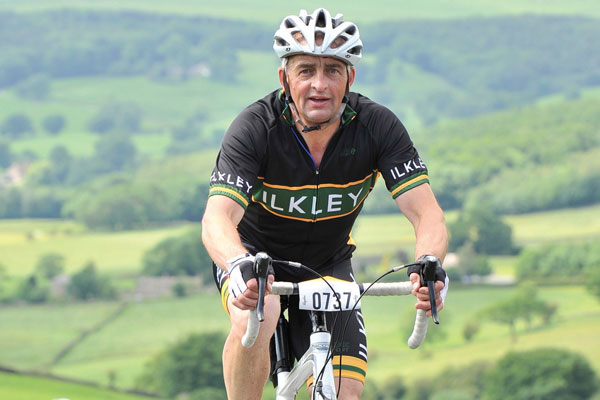Q&A: Recovering from heart surgery

The latest race content, interviews, features, reviews and expert buying guides, direct to your inbox!
You are now subscribed
Your newsletter sign-up was successful
Hi there, I am a 62-year-old male and have been cycling most of my life, I am also a keen hill walker, swimmer and gym member mainly doing weights. Earlier this year I was told I needed a replacement aortic heart valve that would require heart surgery in August or September.
I have been told to stop doing any sort of exercise apart from gentle walking.
When I've had surgery I will do whatever my cardiologist says but I am already suffering withdrawal symptoms from not getting out on either of my bikes. What would your advice be regarding post-op bike rides in terms of how soon, how far and at what heart rate?
Peter Styring
Peter, firstly you have to a large extent answered your own question regarding when to start and how far to go following the operation by stating that you'll "do whatever your cardiologist says". I'm afraid you have no other course open to you when it comes to matters of the heart - what your specialist says goes, no matter the depth of your withdrawal symptoms.
When to resume and what kind of exercise and intensity you will be allowed to undertake is based largely on how well you recover from the operation and that in turn is dictated by your age, your level of fitness and your general standard of health prior to the operation.
From what you say of your lifestyle and exercise habits it sounds like you're in excellent shape so I can't see any reason why you shouldn't enjoy a fairly swift recovery and return to exercise. But your cardiologist will have to decide when that is.
The good news is that a lot of studies have been done on the effects of exercise and training following aortic valve replacements and the results are almost universally excellent. In one study a research team at the Department of Surgery LDS Hospital in Utah studied the effects of maximal intensity exercise following aortic valve replacement.
Four athletic males exercised to exhaustion on a bicycle ergometer while measurements of oxygen consumption and echocardiography were carried out. High levels of power were recorded (230 to 331 watts) and oxygen consumption increased at peak exercise. The report concluded there was no problem with the efficiency of the heart.
The latest race content, interviews, features, reviews and expert buying guides, direct to your inbox!
You're not going to be pushing yourself near these levels of intensity so there's every reason to expect that you might be able to regain your pre-operation level of fitness. Your cardiologist might well prescribe a heart rate ‘safe-zone' in which they recommend you stay during the various stages of your rehabilitation.
This article was first published in the June 20 issue of Cycling Weekly. Read Cycling Weekly magazine on the day of release where ever you are in the world International digital edition, UK digital edition. And if you like us, rate us!
Founded in 1891, Cycling Weekly and its team of expert journalists brings cyclists in-depth reviews, extensive coverage of both professional and domestic racing, as well as fitness advice and 'brew a cuppa and put your feet up' features. Cycling Weekly serves its audience across a range of platforms, from good old-fashioned print to online journalism, and video.